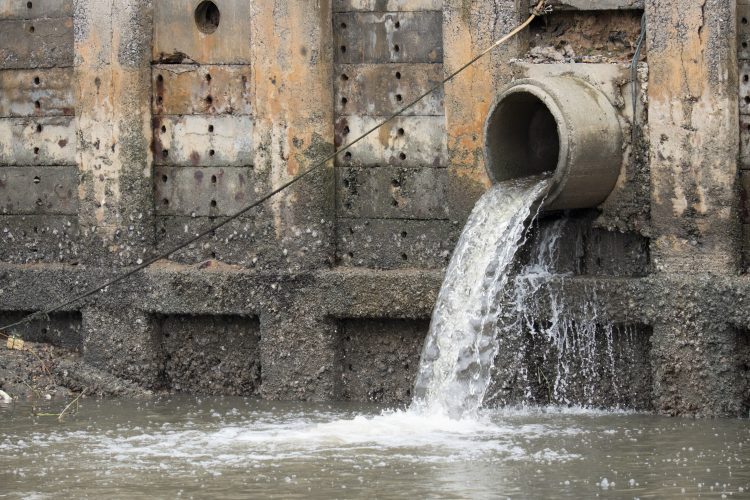EPA announces changes to water pollution standards for slaughterhouses
- Like
- Digg
- Del
- Tumblr
- VKontakte
- Buffer
- Love This
- Odnoklassniki
- Meneame
- Blogger
- Amazon
- Yahoo Mail
- Gmail
- AOL
- Newsvine
- HackerNews
- Evernote
- MySpace
- Mail.ru
- Viadeo
- Line
- Comments
- Yummly
- SMS
- Viber
- Telegram
- Subscribe
- Skype
- Facebook Messenger
- Kakao
- LiveJournal
- Yammer
- Edgar
- Fintel
- Mix
- Instapaper
- Copy Link
Posted: 10 September 2021 | New Food Magazine | No comments yet
The EPA was sued in federal court by several organisations after it failed to update federal water standards for slaughterhouses during the Trump administration, but now it has agreed to change the regulations.


The US Environmental Protection Agency (EPA) has announced that it will update water pollution control standards for the slaughterhouse industry following a December 2019 lawsuit from community and conservation organisations.
The agency has announced that it will initiate a rulemaking process to reduce pollution from three industries: meat and poultry processing plants, which include slaughterhouses; metal finishing businesses; and manufacturers of organic chemicals that discharge polyfluoroalkyl substances (PFAS).
“It’s a great first step that EPA has decided to finally modernize the standards for meat and poultry plants across the country, which had not been updated since at least 2004,” said Sylvia Lam, Attorney for the Environmental Integrity Project.
“We now expect EPA to let us know when they plan to propose updated standards to protect our waterways and communities, since the current limits are allowing an excessive amount of pollution.”
Earthjustice attorney Alexis Andiman added: “Slaughterhouses are leading sources of nitrogen and phosphorus pollution, and their pollution disproportionately harms under-resourced communities, low-income communities, and communities of colour.
“We applaud EPA for recognising that it’s time to update the outdated standards governing pollution from slaughterhouses. Together with our partners, we look forward to working with EPA to ensure that the new standards adequately protect people and the environment.”
In December 2019, the Environmental Integrity Project and Earthjustice filed a federal lawsuit against the EPA on behalf of Cape Fear River Watch, Rural Empowerment Association for Community Help, Waterkeepers Chesapeake, Animal Legal Defense Fund, Center for Biological Diversity, Environment America, Food & Water Watch, The Humane Society of the United States, and Waterkeeper Alliance. Earthjustice claims the lawsuit challenged EPA’s prior refusal to modernise pollution standards for slaughterhouses, in light of evidence demonstrating that revision is necessary.
The federal Clean Water Act requires the EPA to set industry-wide water pollution standards for slaughterhouses and other industries and to review those standards each year to decide whether updates are appropriate to keep pace with advances in pollution-control technology.
During the Trump Administration, the EPA announced that it would not revise the federal water pollution standards for slaughterhouses that discharge pollution directly into waterways, and it would not create standards for slaughterhouses that send their pollution to sewage plants before discharging into rivers or streams.
An October 2018 report from the Environmental Integrity Project and Earthjustice, “Water Pollution from Slaughterhouses,” reviewed the records of 98 meat and poultry processing plants across the US and found that the median facility released an average of 331 pounds of total nitrogen per day into local rivers and streams, which it says is about as much as the amount contained in in raw sewage from a town of 14,000 people.
“We are glad that the EPA will finally strengthen its outdated, unprotective water pollution standards for the slaughterhouse industry. These facilities are a major source of pollution in communities across the country,” said Food & Water Watch Legal Director Tarah Heinzen.
“But our work is far from over – we will participate in EPA’s rulemaking and are prepared to hold the agency accountable if its new standards again fall short of protecting communities directly impacted by water pollution.”
Related topics
Contaminants, Environment, Food Safety, Regulation & Legislation, Water
Related organisations
Animal Legal Defense Fund, Cape Fear River Watch, Center for Biological Diversity, EarthJustice, Environment America, Environmental Protection Agency (EPA), Food & Water Watch, Rural Empowerment Association for Community Help, The Humane Society of the United States, Waterkeeper Alliance, Waterkeepers Chesapeake








